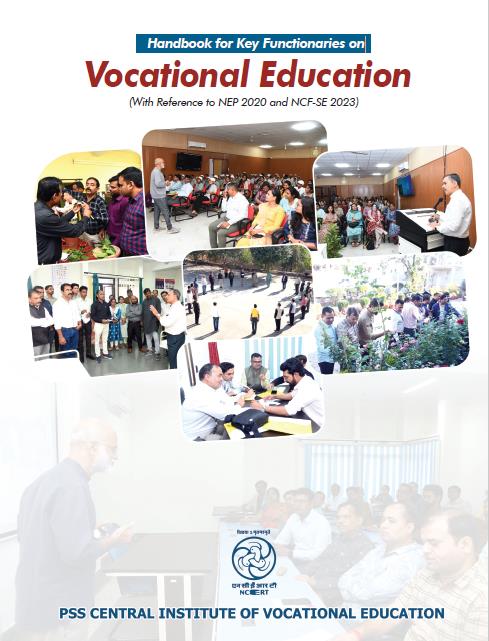
Handbook for Key Functionaries on Vocational Education (with Reference to NEP 2020 and NCF-SE 2023)
Handbook for Key Functionaries on Vocational Education (with Reference to NEP 2020 and NCF-SE 2023)
Powered by Froala Editor
The draft guidelines document titled " On-the-Job Training for School Students" has been developed by the PSSCIVE for systematic implementation of OJT of vocational students in schools. Feedback and suggestions on the guidelines from the stakeholders in VET are solicited and would be highly appreciated. We will try to include as many suggestions/feedback as possible for bringing about necessary improvement in the guidelines. It will also help in enhancing the content and refining the guidelines further and making it relevant for the States/UTs, before the publication. Comments/suggestions may kindly be sent at email address: v.mehrotra@psscive.ac.in on or before 10 April, 2021.

Handbook for Key Functionaries on Vocational Education (with Reference to NEP 2020 and NCF-SE 2023)
Powered by Froala Editor

Guidelines for Careers in Vocational Education and Entrepreneurship Development for School Counselors
Powered by Froala Editor

Fun-based Learning Activities (Grade 6)
Powered by Froala Editor
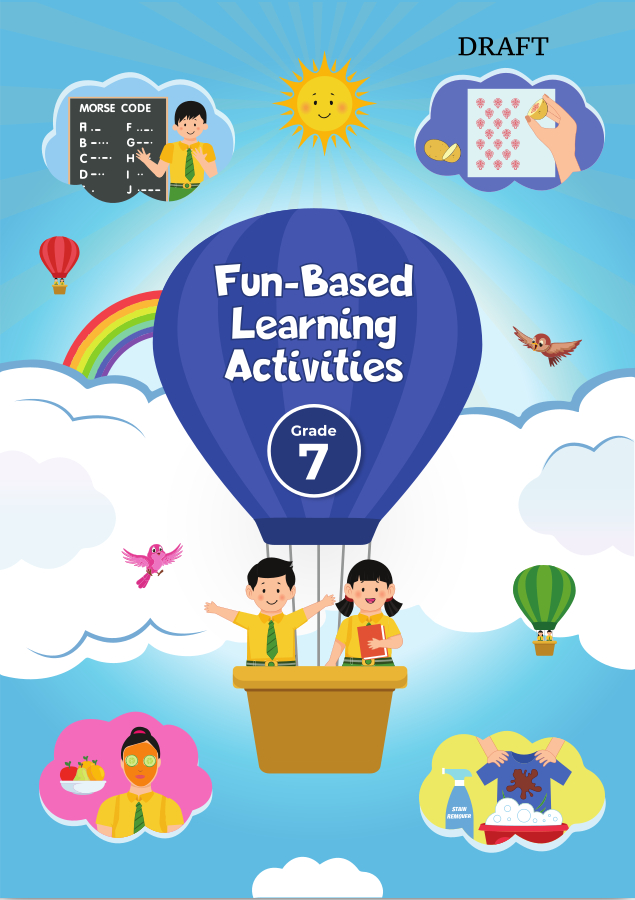
Fun-based Learning Activities (Grade 7)
Powered by Froala Editor
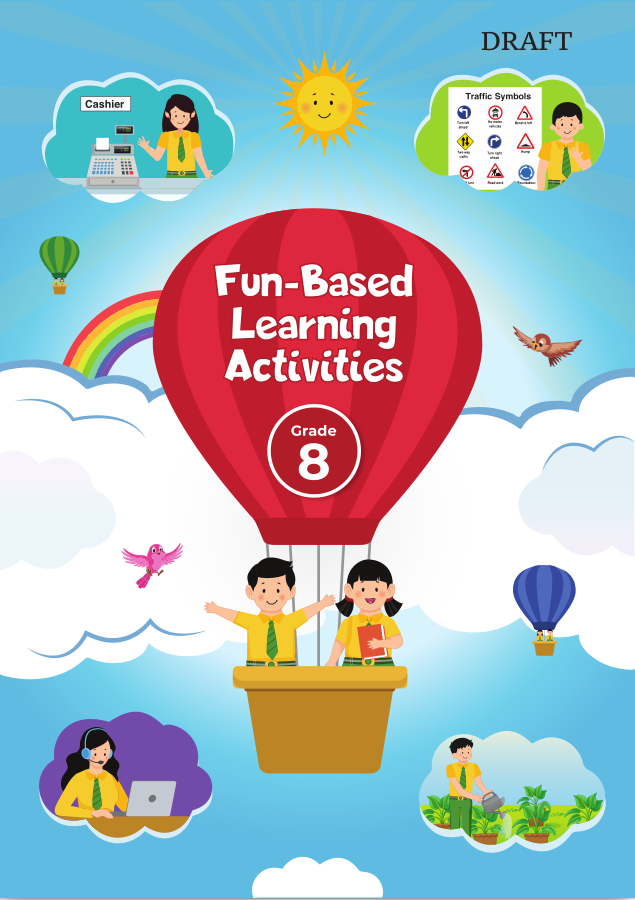
Fun-based Learning Activities (Grade 8)
Powered by Froala Editor
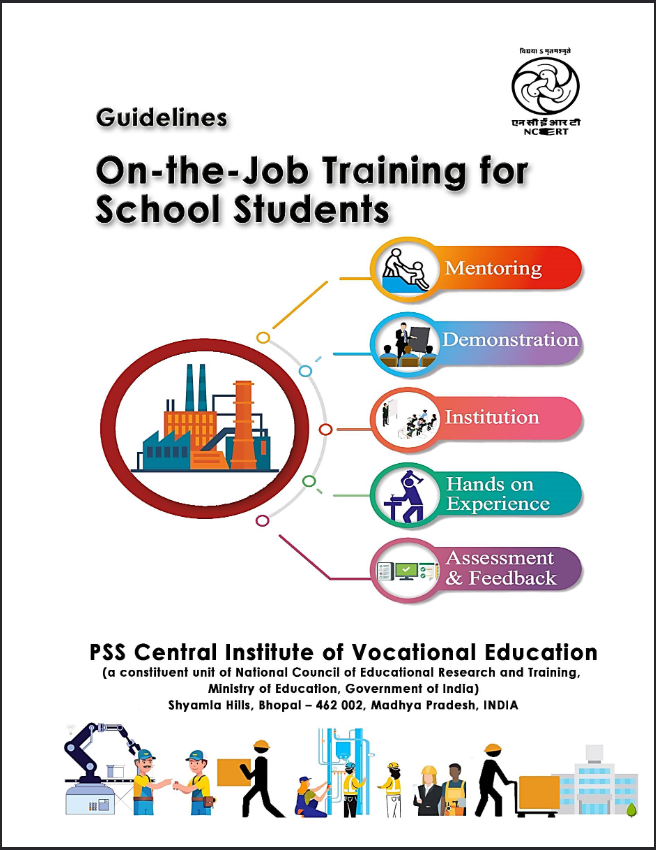
Schools provide an environment to the learners for systematic acquisition of knowledge, skills and attitude required to meet the varied aspirational needs and educational goals. The goals of improving learning outcomes in schools, raising the quality of education and research in education and promoting skill development are priorities for the education sector.
Powered by Froala Editor
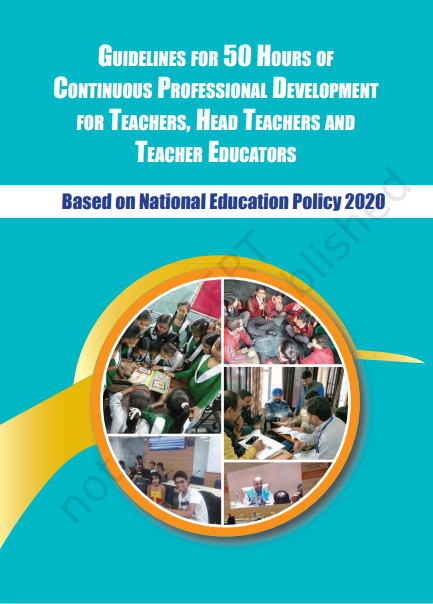
The centrality of teachers in bringing reforms in education has long been recognised by various policy documents, as well as by the reports of various educational commissions and committees. While recognising the need to restore respect for teachers in society, the recently promulgated National Education Policy 2020 asserts that the teacher has to be brought to the centre of fundamental reforms in education. Thus, teachers are seen as the heart of the learning process. In other words, teachers are not only seen as the most important ‘element’ that needs to be changed to improve the education system, but they are also recognised as significant agents of change for implementing educational reforms.
Powered by Froala Editor